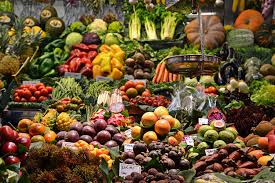With Africa’s food import bill projected to hit $110 billion by 2025, according to the International Institute of Tropical Agriculture (IITA), and Nigeria still grappling with elevated food prices, agricultural biotechnology is emerging as a key tool in the battle for food security, agribusiness resilience, and farmer livelihoods.
Nigeria’s Inflation: Still a Pressure Point
Join our WhatsApp ChannelNigeria’s headline inflation eased to 21.88% in July 2025, down from 22.22% in June, marking a marginal but welcome decline. Food inflation often the primary driver of overall inflation rose slightly to 22.74% in July from 21.97% in June.
The Promise of Biotech
Nigeria recently approved a genetically modified cowpea resistant to the destructive pod borer, which can destroy up to 80% of yields. “This is a landmark innovation for smallholder farmers,” said Dr. Rose Gidado, Country Coordinator of the Open Forum on Agricultural Biotechnology (OFAB).
Meanwhile, the International Institute of Tropical Agriculture (IITA) is developing cassava enriched with protein and Vitamin A. “Biotechnology offers a chance to fight malnutrition through our staples,” said Dr. Nteranya Sanginga, IITA Director-General.
READ ALSO: Zimbabwe Imposes $100,000 Fine On Forex Violators In New Crackdown
NNPCL Slashes PMS Price By N55 In 48 Hours
For agribusinesses, biotech also promises efficiency. Extended shelf-life tomatoes and drought-resistant maize are innovations that could significantly reduce post-harvest losses. “Reducing post-harvest waste is as important as producing more food,” noted Dr. Martin Fregene, Director of Agriculture at the African Development Bank.
The Risks
Environmentalists caution against unintended fallout. “Relying too heavily on modified seeds may lead to resistant pests and weeds,” warned Nnimmo Bassey, Director of the Health of Mother Earth Foundation (HOMEF). “It could trap farmers in cycles of chemical use and dependency.”
Trade concerns linger as well. The European Union maintains tight restrictions on GM imports, threatening market access for exporters. “If countries adopt biotech crops without considering export markets, they risk rejection in Europe,” said Prof. Adebayo Aromolaran, agricultural economist.
Consumer trust remains uncertain civil society groups still demand long-term safety studies and transparent labeling, despite regulatory assurances of GM food safety.
The Balancing Act Ahead
Nigeria’s National Biosafety Management Agency (NBMA) confirms more biotech applications are under review, with Ghana and Kenya pursuing parallel paths. Policymakers must safeguard smallholder interests while enabling innovation.
“Agricultural biotechnology is not a silver bullet, but neither is it a threat to dismiss outright,” said Dr. Rufus Ebegba, former NBMA Director-General. “The critical question is who governs it, and whether smallholders benefit from it.”
Bottom Line
As climate shocks continue to stress food production and inflation especially in food prices remains a pressing concern, agricultural biotechnology is taking center stage in Africa’s food security conversation. Managed with care and oversight, it could help feed a growing population and bolster agribusiness. Mismanaged, it risks deepening inequality and exposing both farmers and markets to new vulnerabilities.
Amanze Chinonye is a Staff Correspondent at Prime Business Africa, a rising star in the literary world, weaving captivating stories that transport readers to the vibrant landscapes of Nigeria and the rest of Africa. With a unique voice that blends with the newspaper's tradition and style, Chinonye's writing is a masterful exploration of the human condition, delving into themes of identity, culture, and social justice. Through her words, Chinonye paints vivid portraits of everyday African life, from the bustling markets of Nigeria's Lagos to the quiet villages of South Africa's countryside . With a keen eye for detail and a deep understanding of the complexities of Nigerian society, Chinonye's writing is both a testament to the country's rich cultural heritage and a powerful call to action for a brighter future. As a writer, Chinonye is a true storyteller, using her dexterity to educate, inspire, and uplift readers around the world.












